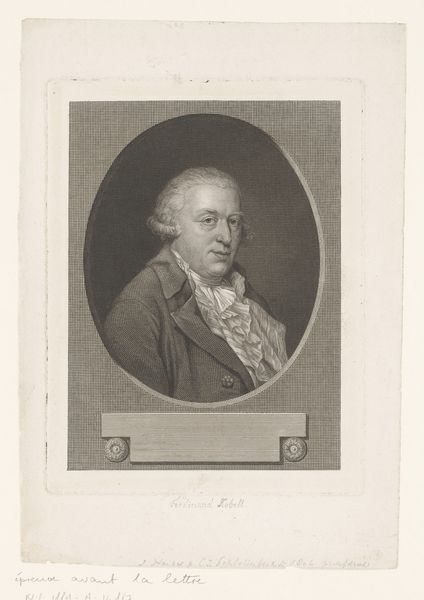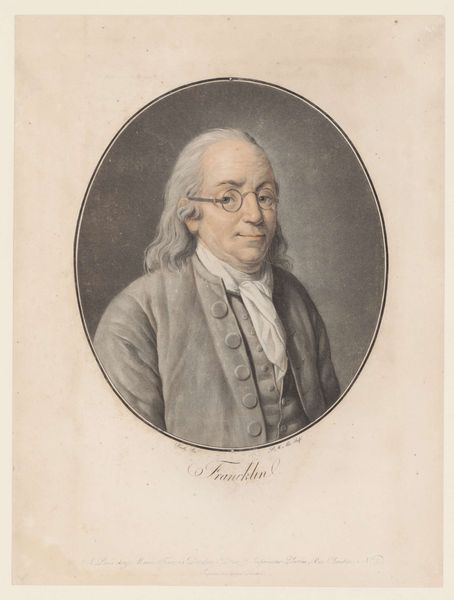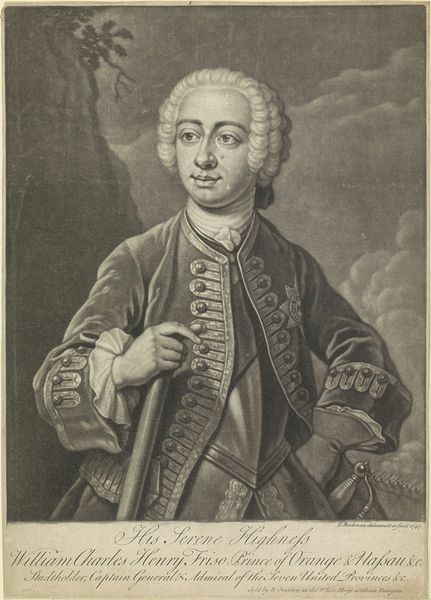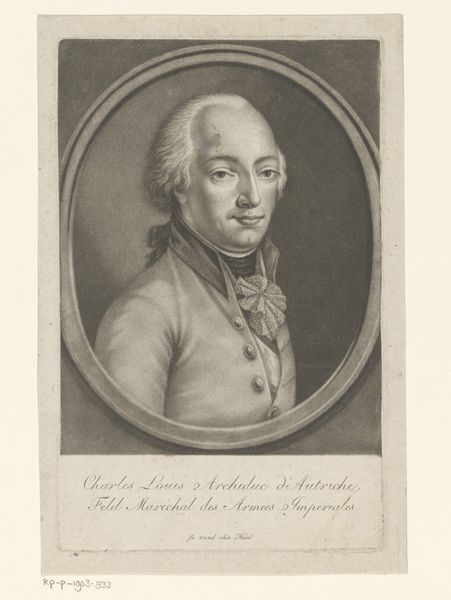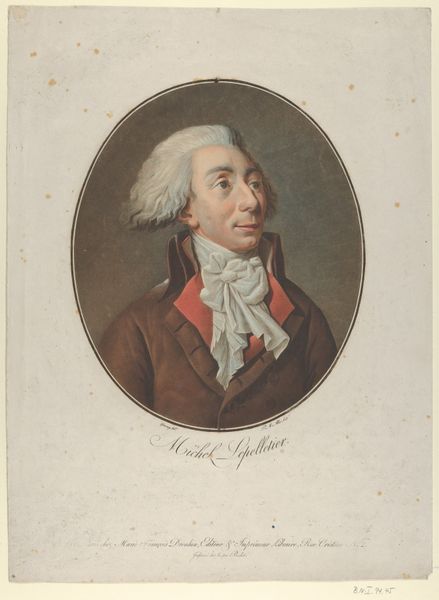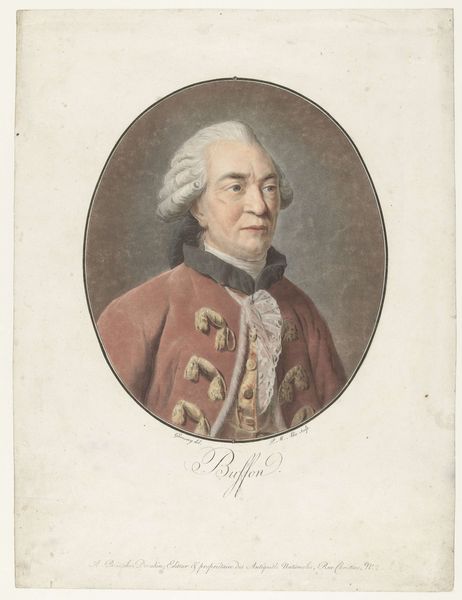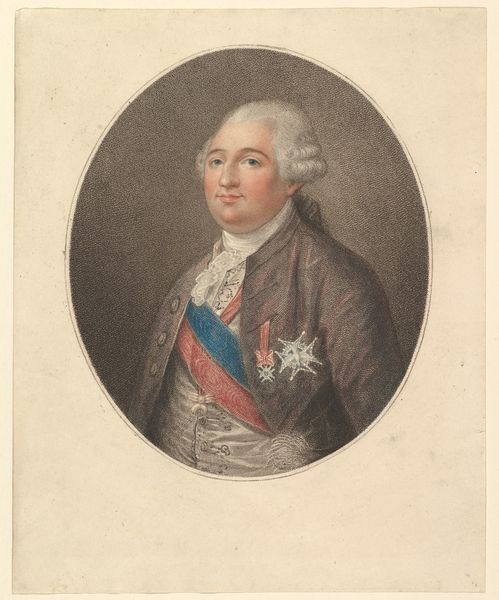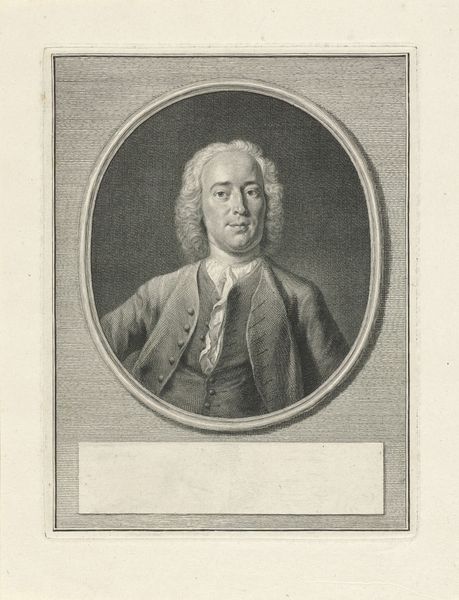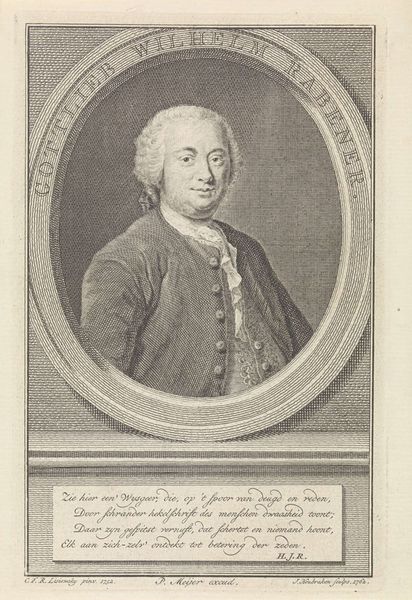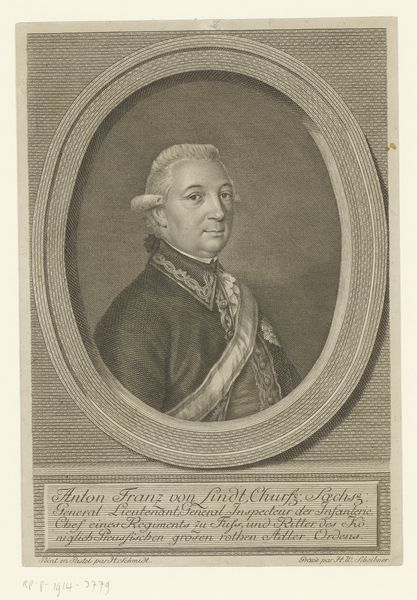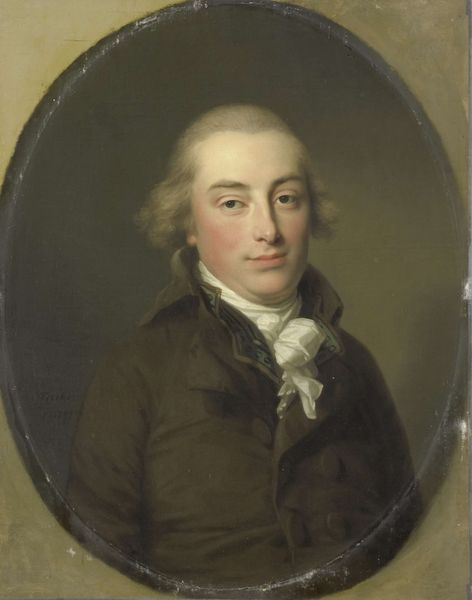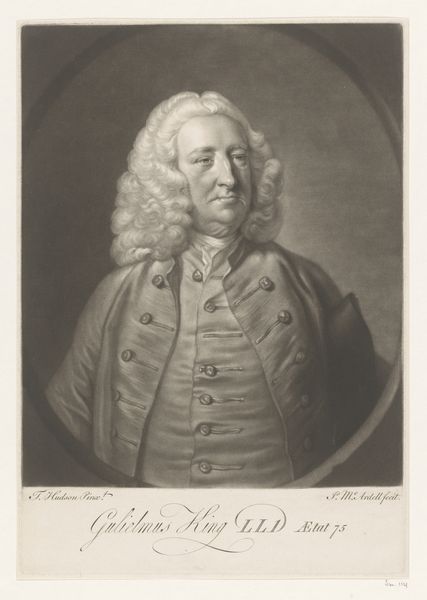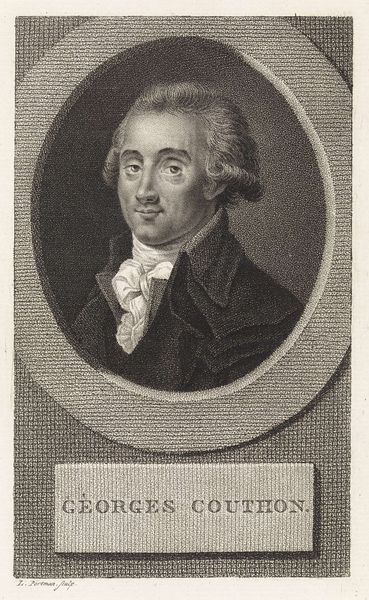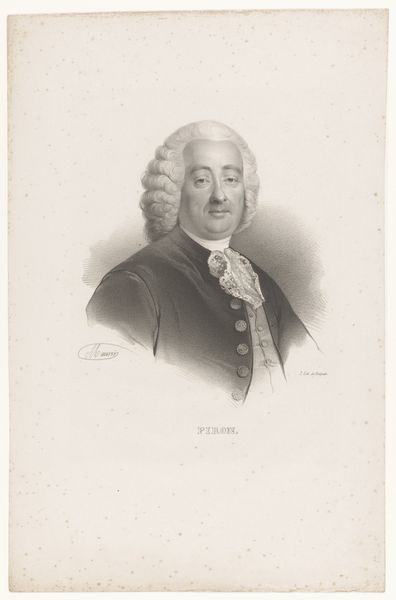
engraving
#
portrait
#
neoclacissism
#
caricature
#
engraving
#
portrait art
Dimensions: height 285 mm, width 220 mm
Copyright: Rijks Museum: Open Domain
Editor: This is “Portrait of Claude Adrien Helvétius,” an engraving by Pierre Michel Alix from around 1793 to 1795. I’m struck by how neatly framed the subject is; the oval almost feels like a deliberate attempt to contain him. What stands out to you when you look at this, considering the context of its creation? Curator: Considering the turbulent years following the French Revolution, this portrait, while seemingly simple, becomes a fascinating artifact of cultural and political positioning. It represents a society attempting to reassert order through Neoclassicism, evident in the crisp lines and formal presentation. Editor: So, the artistic style mirrors societal desires? Curator: Exactly. This work embodies a specific political maneuver; how imagery serves as a powerful tool for shaping public perception. Note the subject’s restrained posture and the deliberate simplicity. Helvétius, associated with Enlightenment thinking, might have been seen as controversial by some factions. Editor: So, presenting him in a dignified, almost understated manner… Curator:…Serves to normalize and perhaps legitimize his image within the changing political landscape. Who gets portrayed, how they are portrayed, and how these images are disseminated—all reflect the political currents of the time. Does the portrait challenge your initial understanding of containment? Editor: It does. What I initially perceived as simple framing now appears to be part of a larger cultural negotiation. The engraving subtly tries to stabilize an intellectual figure in a revolutionary context. Thank you; this has definitely changed my view. Curator: And that is the value of understanding historical context! It’s always more complex than what initially meets the eye.
Comments
No comments
Be the first to comment and join the conversation on the ultimate creative platform.
